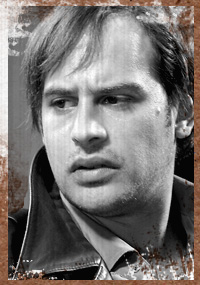
Who was Andreas Baader in your opinion?
No matter how you see Andreas Baader in moral terms, you can’t deny that he’s a legend of some sort. And as such he’s still haunting the collective subconscious of German society. People project their desires, hostilities and anxieties onto his persona. That’s why everyone – including those who knew him - has their own idea of who Andreas Baader was and everyone will defend this idea because they’re convinced it’s the truth.
So how were you able to play Andreas Baader?
I had to keep the sum of what I had learned about Baader somewhere in the back of my head, and yet forget it and play my own Baader. In my opinion, he was driven by a constant craving for attention. There’s little evidence that he was intellectually motivated in the beginning. OK, in general terms he knew what the whole thing was about politically, and he was very anti-authority, but his intellect was born later, out of necessity. Only when he realised that he wasn’t going to get out of Stammheim Prison so easily, he shaped up intellectually and became the political leader who the RAF sympathisers wanted him to be.
Andreas Baader is responsible for the deaths of many people. Weren’t you ever concerned that your portrait of him might be too charismatic or too positive?
Baader must have been an incredibly charismatic, charming man. He used his charm and wit to get people on his side. Especially in the beginning he must have had a certain anti-hero magnetism that attracted people. That’s how it’s written in the script and that’s how I wanted to play him. Without wanting to pass any moral judgement, you have to show his allure and the audience needs to understand why so many people followed this man. He wouldn’t have been able to turn so many people’s heads if he hadn’t had any charisma.
How was it working with Uli Edel?
Working with Uli Edel was brilliant. Uli is a director who guides you without giving you the feeling you’re being ordered around. And that’s a really great thing for an actor, especially since Uli knows exactly what you need and when you need it - when you need encouragement and when you should be left alone. Also, he was able to tell us so much about the time and the left-wing student movement, because he’d been there, he’d been part of it. He managed to create an atmosphere, where we all got the sense that we were portraying was deeply personal to him.